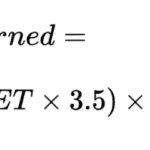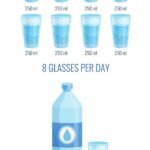Egg Boiling Calculator – Time, Calories, Doneness, & More
Whether you like your eggs soft, medium, or hard-boiled — timing is everything. This egg boiling calculator helps you get the perfect consistency based on egg size, altitude, and more. But there’s more to boiling eggs than just timing. Eggs are a versatile and nutritious food that can be prepared in a variety of ways, from breakfast staples like omelets and scrambled eggs to baked goods and savory dishes.
Egg Calculator
Cooking Time Estimation
Egg Size Conversion
Nutritional Information

UNDERSTANDING lean body meaning
How Long to Boil Eggs by Size, Doneness & Temperature
When it comes to boiling eggs, a few seconds can make all the difference between a soft, creamy yolk and a dry, chalky one. Whether you’re meal-prepping for the week or crafting the perfect deviled eggs, use this guide to get it just right.
🕒 Boiling Time Based on Doneness
Here’s a quick chart to help you get perfect eggs every time:
| Doneness | Boiling Time | Yolk Texture | White Texture |
|---|---|---|---|
| Soft-Boiled | 4–5 minutes | Runny | Just set |
| Medium-Soft Boiled | 6–7 minutes | Jammy (semi-liquid) | Firm |
| Medium Boiled | 8 minutes | Mostly set, slightly soft | Fully set |
| Hard-Boiled | 9–12 minutes | Fully cooked | Firm and opaque |
Start timing only once the water reaches a full rolling boil and you lower the heat slightly to a gentle simmer.
🧊 Room Temperature vs. Cold Eggs
Eggs straight from the fridge take slightly longer to cook than room temperature ones — typically by 30 to 60 seconds. If you’re aiming for precision, let them sit out for 10–15 minutes before boiling.
Putting cold eggs directly into boiling water can also cause cracking due to the temperature shock. Use a slotted spoon to lower them gently into simmering water.
📍 Boiling Eggs at High Altitude
Water boils at lower temperatures at higher elevations, which affects cooking time. Here’s a general guideline:
| Altitude | Adjustment |
|---|---|
| Sea level to 2,000 ft | No change |
| 2,000 – 5,000 ft | Add 1 minute |
| 5,000 – 8,000 ft | Add 2–3 minutes |
| Above 8,000 ft | Add up to 4 minutes and cover the pot |
If you live in places like Denver or Mexico City, your eggs need more time even if the water is boiling.
🍽️ Steaming vs. Boiling
Some people swear by steaming eggs instead of boiling them. It’s gentler and often results in eggs that are easier to peel. Steaming time is usually the same as boiling. Use a steamer basket over 1 inch of water, cover, and time it from the moment the water begins boiling.
Unlock More Than Just Calculators!
Why stop at calculations? Get personalized meals, fitness tracking, and more in our app. Discover a healthier you today! Start your health journey for free!
UNDERSTANDING lean body meaning
Hard-Boiled Eggs + Baking Soda = Easy Peeling Hack
Struggling to peel your hard-boiled eggs without tearing up the whites? You’re not alone. Luckily, a little baking soda can change everything — and there’s science to back it up.
🥄 Why Add Baking Soda?
Adding about ½ teaspoon of baking soda to the boiling water raises the alkalinity, which helps loosen the bond between the egg white and the shell’s inner membrane. This makes the shell peel away more easily, especially with fresh eggs, which are notoriously harder to peel.
🔬 The Science Behind It
Egg whites have a naturally low pH (around 7.6). When you boil them in alkaline water, the higher pH helps denature the proteins more evenly and reduces sticking. It’s not magic — it’s basic chemistry.
🧂 Salt vs. Baking Soda
While salt is often added to water for flavor or to prevent cracking, it doesn’t help with peeling. In contrast, baking soda actually alters the pH, which gives it a functional advantage in the peeling department.
| Additive | Helps with Peeling? | Other Benefits |
|---|---|---|
| Baking Soda | ✅ Yes | Easier peeling, especially fresh eggs |
| Salt | ❌ No | May reduce cracking slightly |
| Vinegar | ⚠️ Sometimes | Softens shell slightly but not reliable |
👨🍳 How to Use Baking Soda for Boiling Eggs
- Fill a pot with water and bring to a boil.
- Add ½ teaspoon of baking soda for every quart (4 cups) of water.
- Gently lower the eggs into the water.
- Boil based on desired doneness (refer to previous section).
- Cool immediately in an ice bath before peeling.
UNDERSTANDING lean body meaning
How Many Calories Are in a Hard-Boiled Egg?
Hard-boiled eggs are a staple in healthy diets for good reason — they’re nutrient-dense, protein-rich, and surprisingly low in calories. But how many calories are we actually talking about?
🥚 Calories in a Hard-Boiled Egg
- 1 large hard-boiled egg contains approximately 77 calories.
- These calories come from:
- Protein: ~6.3 grams
- Fat: ~5.3 grams
- Carbs: <1 gram (essentially negligible)
This makes boiled eggs a perfect snack, especially for keto, low-carb, or high-protein diets.
🥚 How Many Calories in 3 Eggs?
If you’re meal prepping or making egg salad, here’s the quick math:
- 3 hard-boiled eggs = ~231 calories
- With 19g of protein, they provide a substantial energy boost that keeps you full longer.
🍳 Comparison with Fried Eggs
Ever wondered about the calories in a fried egg?
- Fried egg (in oil): ~90–100 calories per egg
- Hard-boiled egg: ~77 calories
So, if you’re counting calories, switching from fried to boiled saves you about 20–25 calories per egg — plus it cuts down on added fats.
🧠 Bonus Tip: Egg Drop Soup Nutrition
Craving something cozy? Egg drop soup is another low-calorie egg-based option:
- 1 cup = ~70–90 calories (depending on ingredients)
- Offers protein, minimal carbs, and comfort without guilt
Want to track your exact intake? Use Recipians to log your meals, check macros, and balance your nutrition automatically.
UNDERSTANDING lean body meaning
How Much Does an Egg Weigh? (& Why It Matters for Recipes)
Understanding egg weight is crucial for accurate cooking and baking. Different recipes may require a precise egg amount or weight, especially when baking. For example, recipes that need exact ratios of ingredients will be affected by slight variations in egg size. Here’s a breakdown of what to expect:
🥚 Egg Sizes and Weights
In the U.S., eggs come in different sizes, and each size varies slightly in weight. Knowing the weight of an egg helps when substituting or scaling up recipes. Here’s a guide to egg weights:
| Egg Size | Weight (per egg) |
|---|---|
| Jumbo | 2.5 oz (70.9 g) |
| Extra Large | 2.25 oz (63.8 g) |
| Large | 2 oz (56.7 g) |
| Medium | 1.75 oz (49.6 g) |
| Small | 1.5 oz (42.5 g) |
| Jumbo (Egg White Only) | 1.25 oz (35.4 g) |
🥚 How Many Ounces in 1 Egg?
A large egg typically weighs around 2 ounces (56.7 grams). This measurement is often used as the standard in most recipes. But as you can see, depending on the size, eggs can vary. So if you need to substitute a size, here’s a quick guide to calculating how much egg is needed:
- 1 large egg = 2 oz (56.7 grams)
- 1 medium egg = 1.75 oz (49.6 grams)
- 1 extra-large egg = 2.25 oz (63.8 grams)
🥚 Why Egg Weight Matters for Cooking & Baking
The weight of an egg impacts baking accuracy. For example:
- A fluffy meringue or a rich cake batter depends on the egg’s structure and protein content, which is influenced by its size.
- In some cases, small eggs may not provide enough liquid or structure for certain recipes. For precision, especially when baking delicate items like soufflés or sponge cakes, ensuring the right egg size is important.
🧑🍳 Substituting Egg Sizes
If you’re working with a recipe that calls for a specific size egg and you only have a different size, here’s how you can substitute:
- 2 medium eggs = 1 large egg
- 1 large egg = 1 jumbo egg or 1 extra-large egg
- Small eggs? Use 1.5 eggs to replace a large egg.
💡 Tip: If the recipe specifically calls for large eggs, sticking to this size will ensure consistency in your results.
UNDERSTANDING lean body meaning
Can You Freeze Hard-Boiled Eggs? (And How to Do It Right)
Freezing hard-boiled eggs is a topic of debate, but it’s certainly possible with the right approach. If you’ve boiled a batch of eggs and don’t think you’ll eat them all before they spoil, freezing is an option to extend their shelf life. However, not all parts of the egg hold up well to freezing, so it’s important to understand which parts can be frozen and how to do it correctly.
🥚 Can You Freeze the Whole Hard-Boiled Egg?
Technically, you can freeze the whole hard-boiled egg, but the texture of the egg white tends to change once thawed. The whites become rubbery and watery, which may not be desirable in most dishes. Therefore, it’s better to separate the yolk from the white before freezing.
🥚 Freezing Hard-Boiled Egg Yolks
Egg yolks freeze much better than the whites. After cooking your eggs, you can easily scoop out the yolks and place them in a container or a freezer-safe bag. They retain their texture and taste much better after freezing and thawing. Use them for making egg salad, deviled eggs, or in baked goods after thawing.
🥚 How to Freeze Hard-Boiled Egg Whites
If you decide to freeze the whites, follow these steps:
- Peel the egg and remove the yolk.
- Place the whites in a freezer-safe bag or airtight container. If you’re worried about freezer burn, try wrapping each egg white in plastic wrap before putting it in the bag.
- Label the bag with the date so you remember how long they’ve been frozen.
- Freeze them for up to 6 months.
💡 Tip: Thaw egg whites in the refrigerator or under cold running water. Once thawed, you can use them in recipes like scrambled eggs or egg casseroles.
🥚 How to Thaw Frozen Hard-Boiled Eggs
When you’re ready to use frozen hard-boiled eggs, you can thaw them overnight in the fridge or under cold water. Freezing works best for the yolk, but even thawed egg whites are suitable for cooking purposes like scrambled eggs or casseroles.
- Yolk: Defrost in the refrigerator or at room temperature for quicker use.
- Egg whites: Thaw in cold water or use immediately after thawing under running water.
🥚 How Long Can You Freeze Hard-Boiled Eggs?
Hard-boiled eggs, when frozen, will last for about 6 months in the freezer. After that, their quality may degrade, so try to use them within that time frame to get the best texture and taste.
UNDERSTANDING lean body meaning
How Long to Boil Eggs by Size, Doneness & Temperature
Common Questions About Eggs
Conclusion
Understanding the intricacies of cooking with eggs can enhance your culinary skills and improve the quality of your dishes. By following the tips and answers provided in this guide, you can prepare eggs perfectly every time and make the most of this nutritious ingredient. Whether you’re boiling, baking, or scrambling, eggs are a versatile and delicious addition to any meal.





